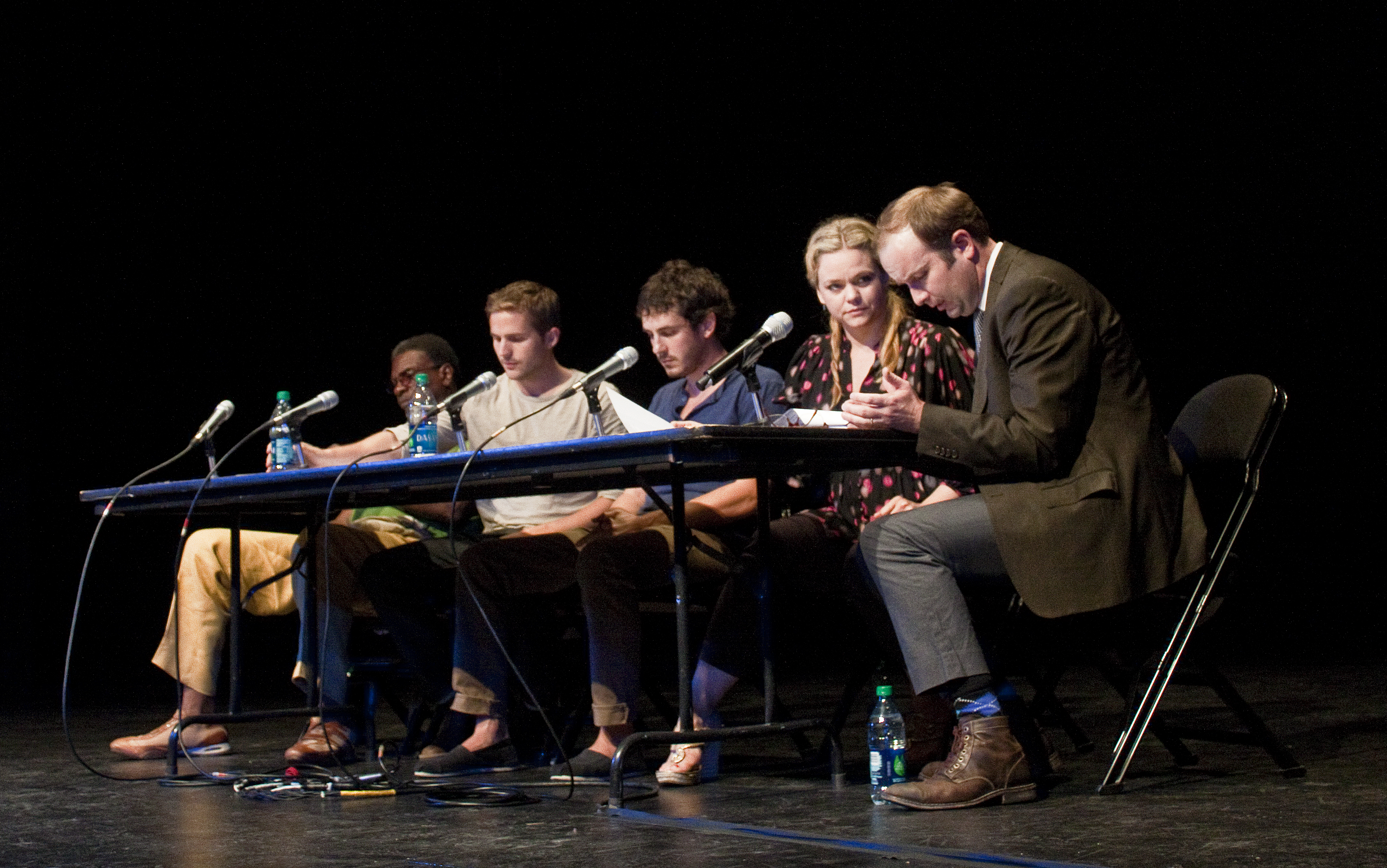Bacchae reinvented: Group uses Greek tragedy to spark discussion on substance abuse

The Dionysus Project is a “town hall” panel discussion that uses content from Euripides’ Bacchae and relates it to modern-day addiction.
By Colin Reid
Sept. 10, 2012 3:39 a.m.
A couple of young recovering addicts, an actor dealing with the pressures of success and a mother who vowed to abstain from drug use to save her children make up a small part of the audience.
They and a few others listen to Euripides’ nearly 2,500-year-old Greek tragedy “The Bacchae,” not for some college seminar and definitely not for entertainment, although the performers reading the serious translation make it as gripping as possible with their dramatic, impromptu wails and shouts.
And even though a panel of professionals share their opinions directly after the performance, it is the audience members who are the experts, relating what they hear from the play to their own experiences. In this instance, they speak to the life shattering fallout of alcohol and drug addiction.
This is the Dionysus Project in action.
In association with drug and alcohol rehabilitation organization Phoenix House and The Partnership at Drugfree.org, the social impact company Outside the Wire presented two special performances of the Dionysus Project at UCLA last Thursday, specifically tailoring them to reflect the correlation between creativity and substance abuse in Los Angeles.
The Dionysus Project follows the same structure and pattern as some of Outside the Wire’s previous theatrical projects. Actors perform a dramatic reading of a literary text molded to the chosen social issue, then professional panelists from the chosen field promptly, and without preparation, respond to what they see and hear.
“It’s loud, it’s fast and it’s not what one associates with reading. … Nor, I hope, will it necessarily match up to what most people have in their mind when they hear Greek tragedy,” said Bryan Doerries, the artistic director and co-founder of Outside the Wire. “It’s like a radio play on steroids.”
Translated by Doerries, Euripides’ “Bacchae” tells the story of the Greek god of madness and wine Dionysus, and his role in the filicidal death of Pentheus at the hands of his intoxicated mother, thereby highlighting the damaging consequences of habitual drug use.
No matter how dated the reference, Doerries said he expected this fictional, tragic example of substance abuse to connect with the audience and, in turn, invite them to disclose their own difficulties with the topic.
“That is really the objective of the entire event, to create the conditions for a conversation that wouldn’t have happened had we not performed Euripides’ play,” said Doerries, who also directed, facilitated and read during the performance. “Euripides’ play is really just a catalytic tool for getting that conversation to happen, and in some ways, the discussion is the objective, the performance is really a pep rally.”
Having debuted last May in the rural Appalachians of Kentucky to a community ravaged by prescription medication and methamphetamine abuse, the Dionysus Project was in its pilot phase while at UCLA. However, Doerries said he was still pleased by the discussion that took place between the professional panelists, the audience and himself.
“I’ve discovered that where there is a need, we’ve kind of become like the fire department or like I say to some people, the Ghostbusters,” Doerries said.
Listening and responding to the audience’s stories was panelist and UCLA Integrated Substance Abuse Programs research psychologist Dr. Rachel Gonzales. Gonzales lent her expertise and knowledge of recovery and public health to the discussion, and said she found new meaning in the topic after watching the performance.
“Theater has a way of moving you and playing on your emotions,” said Gonzales, who has a Ph.D. in public health from UCLA. “As (the performers) were acting out the scenes, it emotionally drew me in, and I was able to think about how drug use can do the same thing.”
Actor Keith David, best known for his roles in “Requiem for a Dream” and “Crash,” has worked as a performer on previous presentations for Outside the Wire, but unusually served as both a performer and panelist during the Dionysus Project, mainly because of his place in the film industry and own personal background with alcohol and drug use.
David said that today’s limitations associated with substance use were much less stringent for his generation, where it was expected to a certain degree to indulge in alcohol and drug use during most celebrations and gatherings. That doesn’t imply consequences for substance abuse were less severe though, David said.
“One of the things that addiction does to people is it tends to make them isolated,” he said. “Once (the addiction) ascends to a certain level, suddenly you are a junkie, you are addicted, you are toxic. You’re no longer in control of it and then you become a better liar, mostly to yourself.”
This is one reason why David said he appreciates Outside the Wire’s presentations. The discussions and dramatic readings inform the public about serious social issues, while letting those who are directly affected by these issues know they are not alone in their struggles.
After the completion of both performances of the Dionysus Project, Doerries said he learned audience numbers do not equate to depth of discussion, and that those who wish to have a meaningful conversation are never disappointed.
“No audience is too small,” Doerries said. “When a group of people come seeking something and they want to have a communal experience, whether it’s 40 people or 1,000, something special always happens.”

